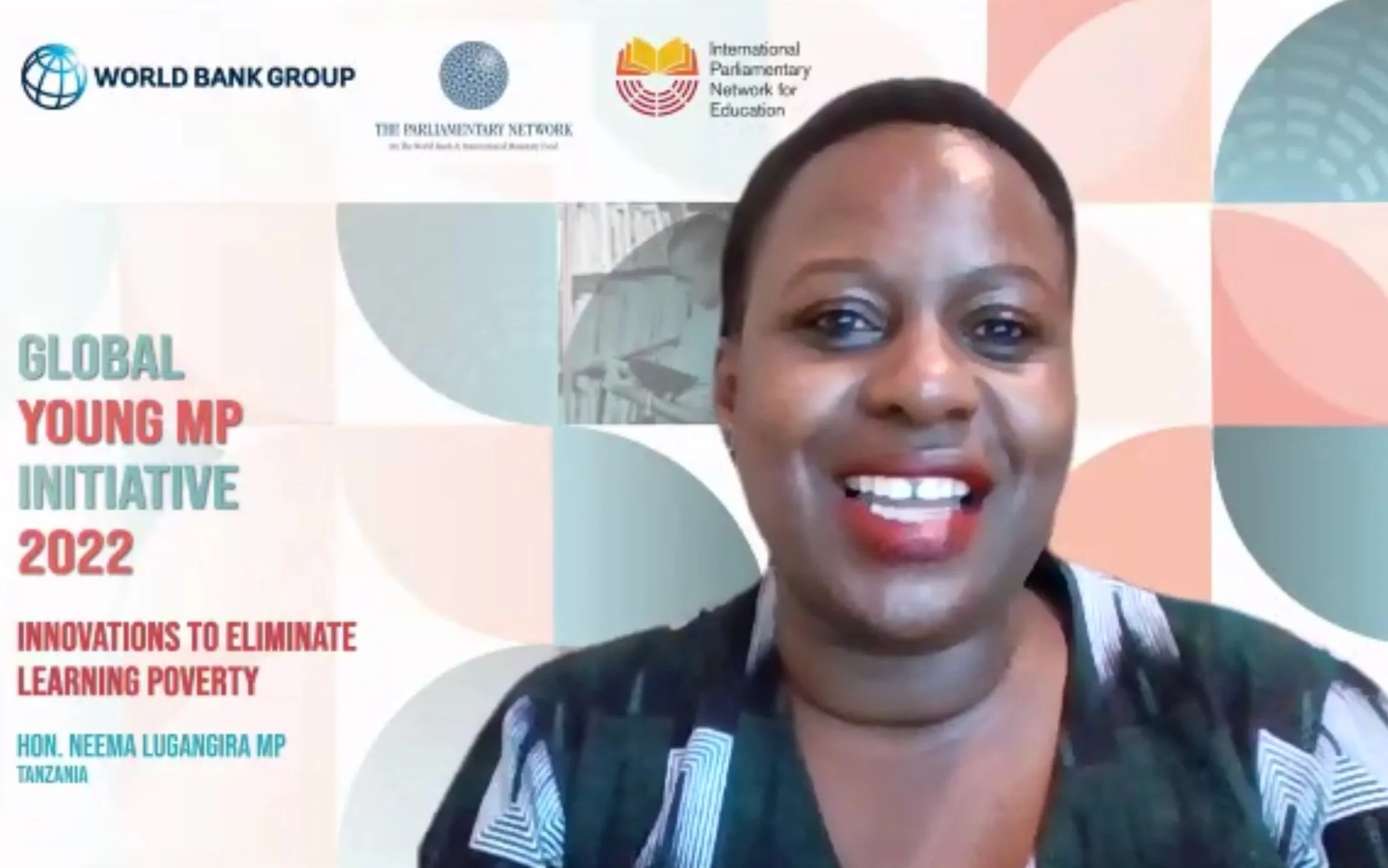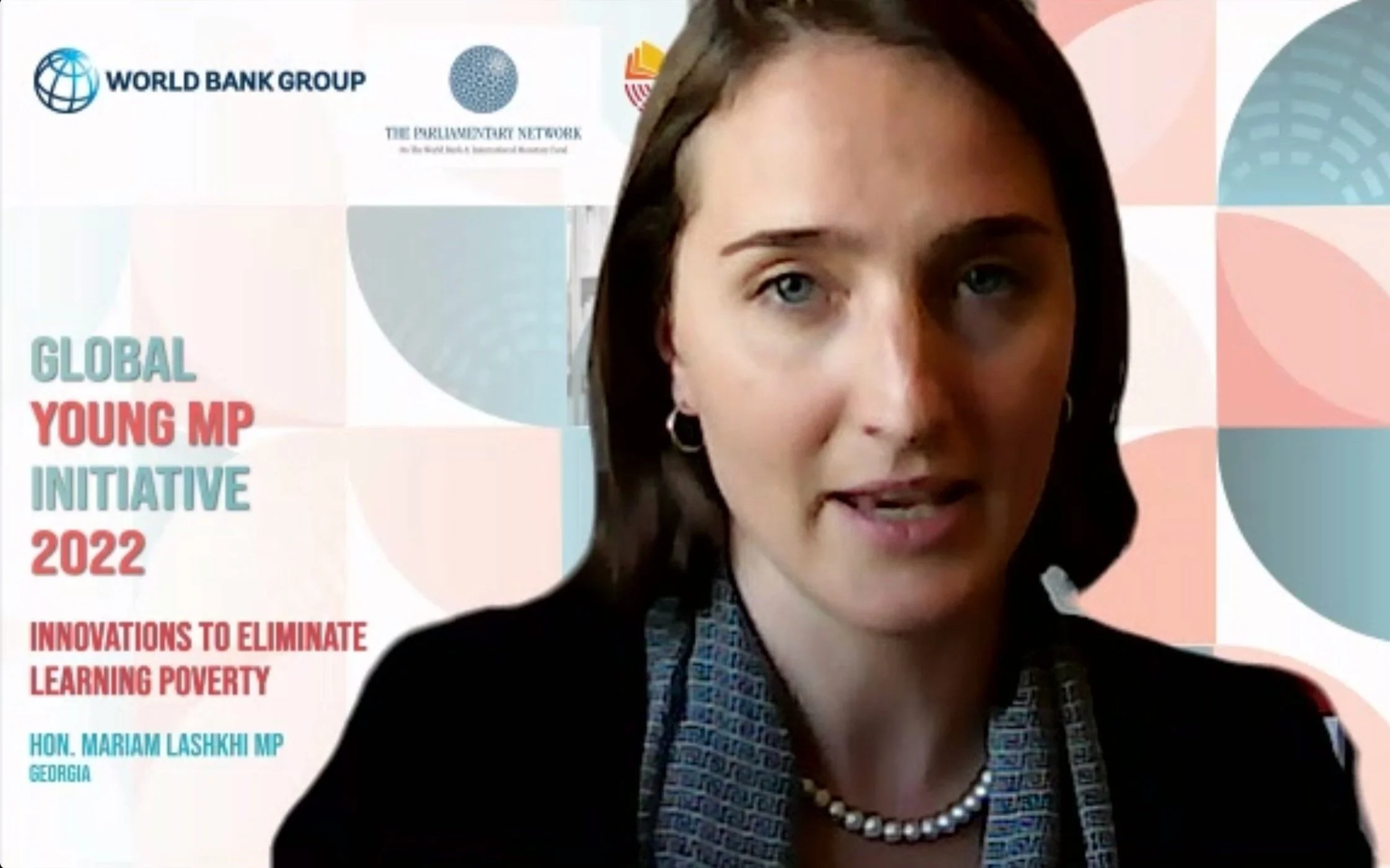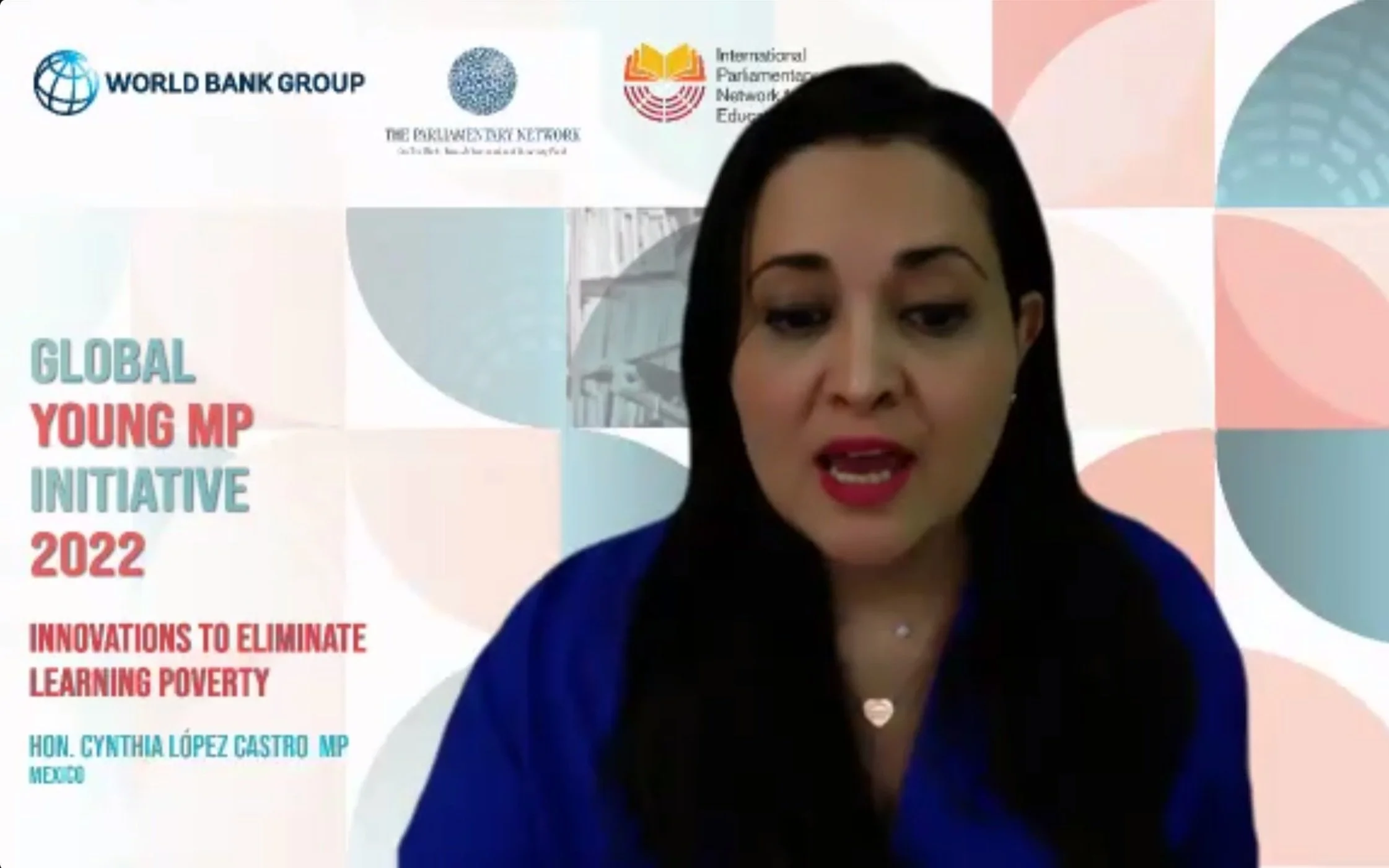Young MPs in discussions around learning poverty
On 14 April, IPNEd teamed up with the World Bank, the Parliamentary Network on the World Bank & IMF and the Inter-Parliamentary Union in convening parliamentarians aged 40 and under around the theme of ‘Innovations to Eliminate Learning Poverty’.
The discussion took place under the umbrella of the World Bank’s ‘Global Young MP Initiative’. It set out to explore approaches to modernising education systems in the context of the current global education crisis, with the goal of ensuring that all children can read and understand a basic text by age 10.
The discussion was moderated by Hon. Dyah Roro Esti Widya Putri MP from Indonesia, and opening remarks were delivered by Sheila Redzepi, Vice President of External and Corporate Relations at the World Bank.
Jaime Saavedra, Global Director for Education at the World Bank, emphasised the key role parliamentarians can play in tackling the global learning crisis. He also called for a sense of urgency in mitigating the unequal learning losses due to COVID-19.
“This high rate of learning poverty is an early warning that all education goals included in SDG4 are in jeopardy.”
Representing IPNEd, the Hon. Neema Kichiki Lugangira MP of the Tanzanian Parliament outlined the role parliamentarians can play in delivering improved learning outcomes. In her words, this can be done through:
Encouraging governments to collect learning data
Ensuring accountability for learning outcomes
Prioritising learning in the expenditure of education resources
Ms. Lugangira also announced that IPNEd and the Global Partnership for Education are developing a Parliamentary Toolkit on Domestic Education Financing, which will be a resource for delivering better education budgets.
"This toolkit can really capacitate & empower parliamentarians to advocate for domestic education financing and also scrutinise the budget."
We were pleased to hear from IPNEd member Hon. Mariam Lashkhi MP, Deputy Chair of the Foreign Relations Committee and Member of the Education and Science Committee in Georgia, who joined us all in expressing support for the education sector in Ukraine.
Mexican IPNEd member Hon. Cynthia López Castro MP spoke on inequalities in education infrastructure, including access to technological equipment and platforms as well as teacher training. She also spoke on the disparities and divisions between - but also within - different countries.
The audience also heard from IPNEd member Hon. Victor Negrescu MEP, who highlighted the need for a global initiative to increase the access to quality education and to accelerate the educational process.
IPNEd member parliamentarians and representatives from around the world shared their reflections on the crucial actions that parliamentarians and policymakers can take to strengthen global education systems and eliminate global learning poverty.
A renewed commitment to sustainable recovery
Even before the pandemic hit, young people worldwide were more likely to be out of school, employment, or training. Now, the disruption caused by the pandemic threatens to leave an entire generation behind. Among young people, adolescent girls have been particularly affected. Ambitious long-term visions are integral to an inclusive and sustainable recovery.
Learn more about IPNEd’s priorities, including tackling learning poverty, here.





